'We are losing a generation of young people to drug gangs'
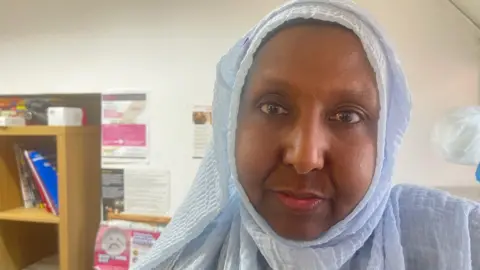 BBC
BBCSomali families in north London say they are fighting a battle for their children's lives.
"The issue is the supply and demand of recreational drugs," explains community champion and parent of seven, Sadia Ali. "The workforce is children and young people."
When she set up her charity, Minority Matters, in Islington 15 years ago, the aim was to help children from a refugee background succeed in literacy and numeracy.
But instead the charity has found itself trying to safeguard children, many of whom are being exploited through the "county lines" drugs trade.
"It is a billion-pound industry," Ms Ali says. "We are paying the price for that. We are losing a generation of young people."
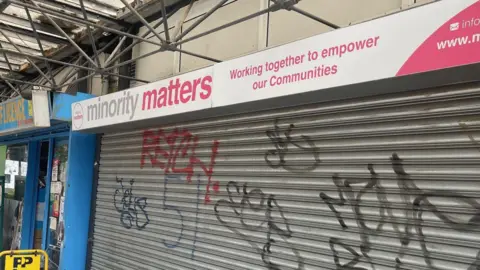
County lines is the transportation of illegal drugs from one area to another, often across police and local authority boundaries, and usually carried out by children or vulnerable people who are coerced into it by gangs.
The "line" is the mobile phone line used to take the orders of drugs.
People exploited in this way will often be exposed to physical, mental and sexual abuse, and will sometimes be trafficked to areas a long way from home.
Young and vulnerable people don't always recognise that they are a victim of crime, or realised they have been groomed.
Estimates suggest that approximately 14,000 children were identified as at risk or involved in child criminal exploitation in 2022 to 2023, according to Home Office County Lines Data, and this may be a significant underestimate of the real number of those involved.
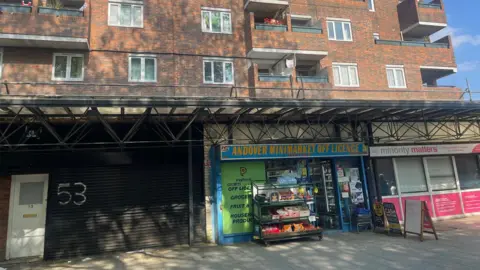
'I've never known it this bad'
"Young people are being groomed all over Islington, but predominantly on the Andover Estate, where these older males are chilling right outside the football pitch," says Mohammed, 31, a youth worker, who asked me not to use his real name.
"They know their targets, they know what kind of people they are looking for; the ones who are more financially deprived; the ones that need love.
"Young people are being forced to go 'OT' or 'out of town' to sell drugs.
"Young people are being told, 'Here's a new pair of shoes, here's money to go to the chicken and chip shop.' They see that person as an older brother, or even older sister, at times.
"I've been living in Islington for 25 years and I've never known it to be this bad within the Somali community. "
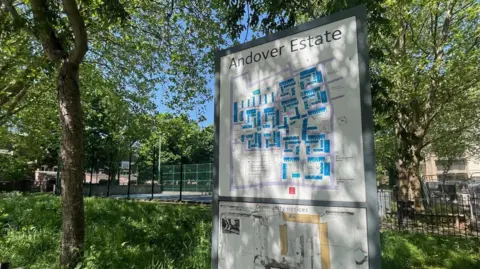
As part of its campaign to advocate for the Somali community and other hard-to-reach communities, Minority Matters trains so-called parent champions.
It is a two or three month-long personal development course for local parents, to build self-confidence, manage anger and offer outreach and peer support.
The charity has also just hosted its second conference in Islington, bringing together local families with representatives from the Metropolitan Police, Islington Council and the Mayor's Violence Reduction Unit, at Finsbury Park Mosque.
Sadia has taken this opportunity to remind those in power of the very real challenges her community is facing.
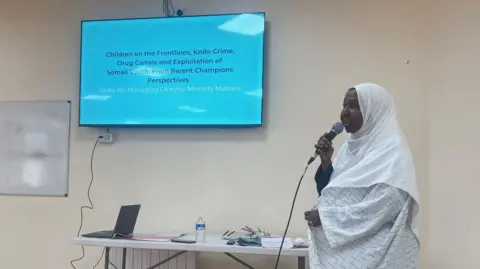
"Almost everybody knows either a relative... or someone from the neighbourhood who has been affected by county lines exploitation and drug-dealing," Sadia says.
"During the process of grooming and exploitation, the children are introduced to drugs. They are using nitrous oxide, drinking 'lean' (a drink made up of cough syrup and mixed with a soft drink), smoking weed and Spice. Its part of the brainwashing and control."
And with the use and sale of drugs comes knife crime.
Figures from the Ben Kinsella Trust show that 31% of offences recorded by the Met Police in the past year involved a knife.
"Young people are being trained to carry knives," explains Sadia. "They tell us they carry knives to guard the drugs and to fight anybody off that attacks them. They tell you it is for protection. They are trained to kill."
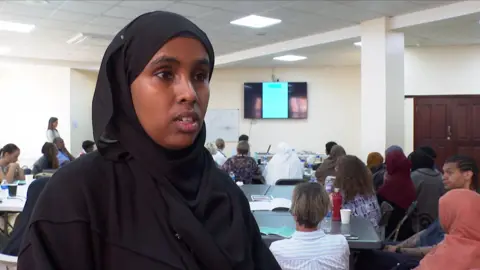
Umukher Farah is a Somali mother living on the Andover estate with her baby son. She is so worried about his future that she decided to attend Sadia's conference, even though Ismael is only nine months old.
"I want Somali parents to wake up, and the services here to see that we are really eager to get the support we need. Because we pay the price for our sons being un-alived in the middle of the streets."
Author and teacher Nicola Garrard runs a programme funded by the Mayor of London's Violence Reduction Unit, and started volunteering with Minority Matters after one of her former students, Mahad Ali, was murdered in 2016. She also spoke at the conference.
"Often middle-class users of drug like cocaine, 'party' drugs, don't see themselves as bad people. They put out their recycling, they buy organic vegetables and they often have children themselves.
"They don't realise that there's a child who is running that cocaine on county lines or in London who is terrified, who has been brutalised, who has been manipulated. They can't connect that moment of fun with child abuse."
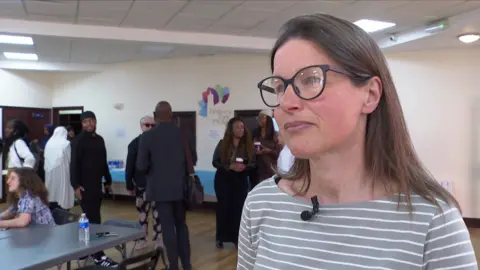
For some young people, the price of trying to escape the gangs is high. Minority Matters has supported families where a young person has been intimidated by being set alight, scalded or stabbed, but the victims refuse to report it to the police.
Some young people are in and out of prison.
"Drug debts are not being paid by anybody else so they have to work again in order to pay. It's difficult to find somewhere where young people will be safe from drugs predators," explains Sadia.
This has led to parents sending their children to be schooled or rehabilitated abroad, if they are able, to safer places in the Middle East or East Africa.
"Those who can remove their children and find places where they can be rehabilitated or de-groomed. I know around 50 families living in the borough who have had to do this. If the child's only option is to be on the streets, in prison or to be killed... I think there is no choice."
'We need to do more'
Lib Peck, director of London's Violence Reduction Unit, said: "Tackling violence is deeply complex. We're committed to prevention and building on the 400,000 positive opportunities we have already delivered by intervening at key moments when young people are vulnerable to exploitation.
"Last year, London recorded the lowest number of homicides of under-25s for 22 years, and hospital admissions for assault with a knife are down 28% compared to when the VRU was set up.
"But it's clear we need to do more. We are determined to work in partnership with families and communities to keep young people safe, both in and out of school, by providing help through youth work, and access to youth clubs and hubs."
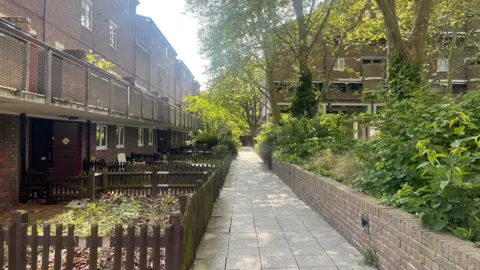
Sadia is a Muslim and her beliefs forbid intoxication. But when it comes to recreational drugs, because she believes more people are taking them, she can see only one way forward: legalisation.
"The demand for drugs has changed," she explained. "The only way to safeguard children is for those who want to buy recreational drugs is to have somewhere safe to buy it legally.
"People who want drugs are getting their drugs.
"Right now the people who are paying the price are us and our children. No child will be safe if the drugs market continues as it is today."
A Home Office spokesperson told the BBC: "While we do not agree that the legalisation of these dangerous drugs is the answer, we do absolutely agree that our priority must be to prevent harm to young people, and tackle the criminal gangs who put them at risk."
An Islington Council spokesperson said: "We have said before that there is more we must do to support our Somali community — and that remains true today.
"Islington Council is committed to working in close partnership with Somali residents, especially in areas like the Andover Estate, to tackle the root causes of criminal exploitation and improve the lives of young people and families."
Listen to the best of BBC Radio London on Sounds and follow BBC London on Facebook, X and Instagram. Send your story ideas to [email protected]
